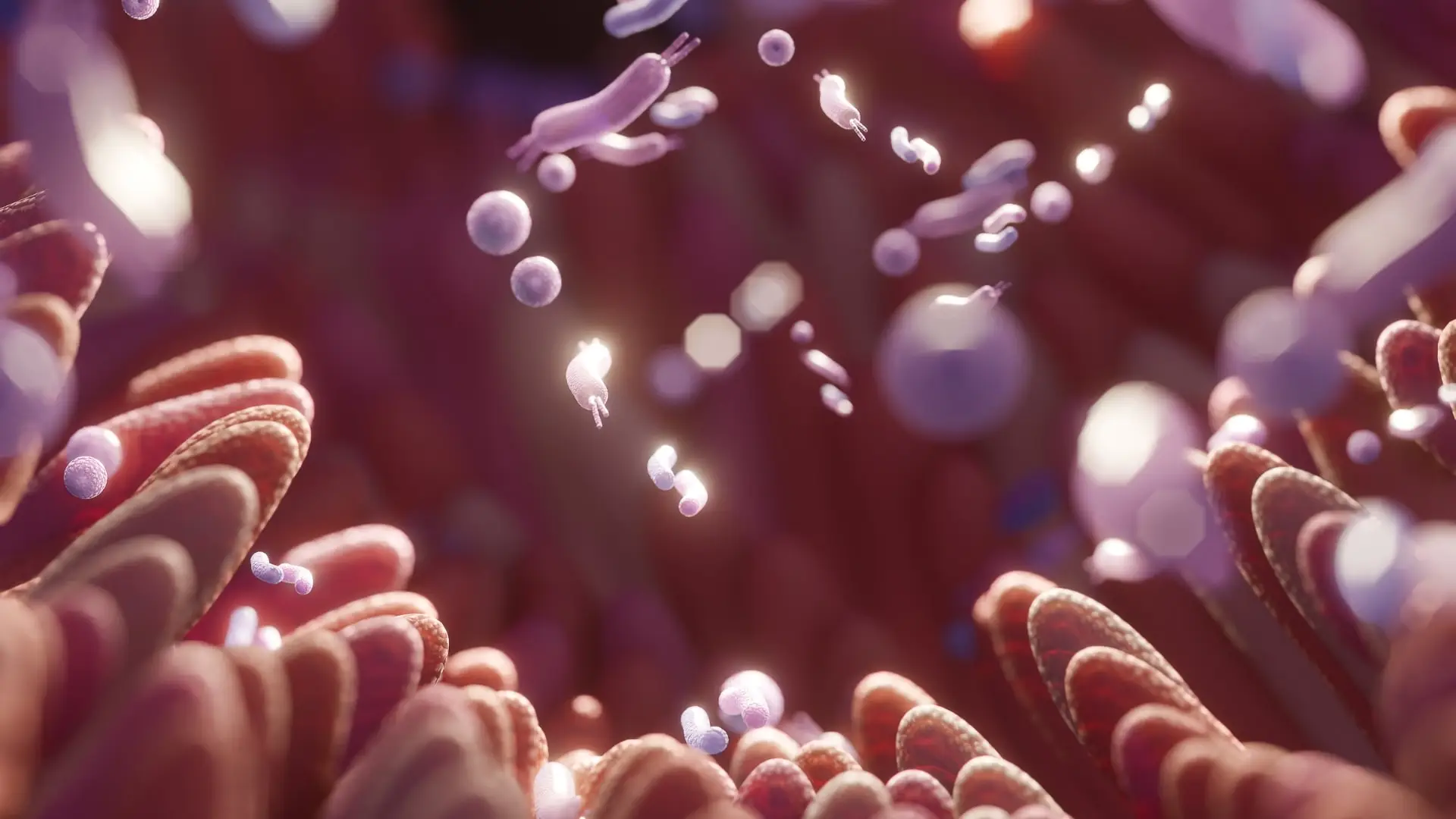Introduction
Depression doesn’t always develop independently; it can emerge due to other chronic conditions, leading to secondary depression.
Many individuals experience depressive symptoms as a result of illnesses like Irritable Bowel Syndrome (IBS), chronic disease, autoimmune disorders such as rheumatoid arthritis, and neurological conditions including Alzheimer’s disease and schizophrenia.
These conditions contribute to psychiatric disorders, often making traditional depression treatment less effective. Studies have explored the relationship between inflammation, immune responses, and depressive symptoms, particularly focusing on the gut-brain axis (doi 10.1016).
Ketamine therapy is emerging as an effective treatment for those struggling with treatment-resistant depression linked to chronic conditions. Unlike traditional antidepressants, ketamine has rapid antidepressant effects, targeting GABA receptors, NMDA antagonists, and norepinephrine release to improve mood disorders in depressed patients.
Research suggests that low-dose ketamine infusions may significantly reduce symptoms in individuals with secondary depression linked to physical illnesses.
Understanding Secondary Depression
What is Secondary Depression and Depressive Symptoms?

Secondary depression arises as a response to chronic illness, inflammatory processes, or nervous system dysfunction. Many patients developing depression due to IBS or autoimmune diseases like rheumatoid arthritis experience heightened immune system activation, pro-inflammatory cytokines, and peripheral immune cells affecting brain function.
Clinical studies show that inflammation can cross the blood-brain barrier, contributing to major depressive disorder (MDD) and other depressive disorders. Specific studies have explored the relationship between inflammation and depressive symptoms, providing valuable insights (doi 10.1016).
Traditional depression treatments, such as SSRIs and electroconvulsive therapy (ECT), may not adequately address depression linked to chronic disease. This has led researchers to explore ketamine administration as a promising treatment option.
The Gut-Brain Axis and Depression
The gut-brain axis (GBA) is a fascinating bidirectional communication system between the brain and the gut, utilizing neural, inflammatory, and humoral pathways. This intricate network plays a pivotal role in the pathophysiology of mental disorders, including depression.
Emerging research has shown that the gut microbiota significantly influences brain function and behavior, with alterations in the gut microbiota being linked to depressive symptoms.
The gut microbiota produces a variety of neurotransmitters and hormones that can impact mood and cognitive function. For instance, serotonin, a key neurotransmitter that regulates mood, appetite, and sleep, is largely produced in the gut.
Changes in the gut microbiota can lead to fluctuations in serotonin levels, potentially contributing to depressive symptoms.
Moreover, the gut-brain axis is crucial in regulating the immune system. The gut microbiota generates cytokines, signaling molecules that can influence immune responses.
Alterations in the gut microbiota can result in changes in cytokine levels, leading to inflammation and exacerbating depressive symptoms. Understanding the gut-brain axis opens new avenues for addressing depression through gut health and microbiota modulation.
Ketamine Therapy: A Game-Changer for Secondary Depression
How Low Dose Ketamine Works

Ketamine operates differently from traditional antidepressants, targeting NMDA antagonists and deep brain stimulation pathways. This allows for:
-
Rapid improvement in mood (within hours to days)
-
Reduction in chronic stress-induced depressive symptoms
-
Enhancement of synaptic connections in brain cells
-
Modulation of inflammatory processes and immune cells
Through its effects on the central nervous system, ketamine reduces depression-like behavior and stabilizes mood in individuals with bipolar disorder, major depression, and anxiety. Animal studies have demonstrated ketamine’s greater potency in reversing stress-induced depression compared to traditional medications.
Low-Dose Ketamine Therapy for Depression
Low-dose ketamine therapy has emerged as a groundbreaking approach in the treatment of depression, particularly for those with treatment-resistant depression. Originally used as an anesthetic, ketamine has been found to possess potent antidepressant properties when administered at low doses.
Typically, low-dose ketamine therapy involves administering 0.5-1.0 mg/kg of ketamine either intravenously or orally, in a series of sessions spaced several days apart. This method has shown remarkable efficacy in rapidly reducing depressive symptoms, often within hours or days of administration. Additionally, it has been effective in reducing suicidal ideation and enhancing the overall quality of life for patients.
The exact mechanisms by which low-dose ketamine exerts its antidepressant effects are not fully understood. However, it is believed to involve the activation of neurotransmitters such as glutamate and GABA, which play crucial roles in mood regulation. This novel approach offers hope for those who have not found relief with traditional antidepressants.
Ketamine for IBS-Related Depression
IBS is a complex disorder influenced by the gut-brain axis, with significant links to mental health conditions. Patients with IBS often suffer from depressive disorders due to chronic discomfort, inflammation, and vagus nerve dysfunction. Clinical trials show that low-dose ketamine infusion may help regulate the nervous system, improving depression symptoms and gut function.
Ketamine therapy for IBS-related depression offers:
-
Reduction in gut inflammation and pain perception
-
Modulation of vagus nerve activity for improved mood and digestion
-
Alleviation of treatment-resistant depression in IBS patients
Ketamine’s Effects on the Gut Microbiome

Ketamine’s impact extends beyond the central nervous system, influencing the gut microbiome in ways that may contribute to its antidepressant effects. Research has shown that ketamine can alter the composition of the gut microbiota, increasing the abundance of beneficial bacteria while reducing the presence of pathogenic bacteria.
These changes in the gut microbiome are significant because the gut bacteria play a crucial role in the production of neurotransmitters like serotonin and dopamine, which are essential for mood regulation. By promoting a healthier balance of gut bacteria, ketamine may help enhance the production of these mood-regulating neurotransmitters, thereby alleviating depressive symptoms.
Furthermore, the modulation of the gut microbiome by ketamine may also reduce inflammation, which is often linked to depression. This dual action on both the brain and the gut highlights ketamine’s unique potential in treating depressive disorders.
Ketamine for Chronic Pain and Autoimmune Disease-Linked Depression

Individuals with chronic diseases such as fibromyalgia, rheumatoid arthritis, and autoimmune disorders often experience secondary depression. Research support has demonstrated that ketamine treatment can:
-
Reduce inflammatory markers in peripheral immune cells
-
Cross the blood-brain barrier to modulate brain inflammation
-
Improve mood disorders and alleviate chronic pain
Studies have found that s-ketamine, a variant of ketamine, may be especially effective for long-term treatment of immune-related depression.
Ketamine for Neurological and Psychiatric Disorders and Depression
Patients suffering from Alzheimer’s disease, Parkinson’s disease, and post-stroke depression often experience severe depression as part of their condition.
Research suggests that ketamine infusions may improve brain function, neuroplasticity, and mood regulation in these individuals. Systematic reviews and meta-analyses have highlighted ketamine’s potential to counteract neuroinflammation and restore synaptic connectivity.
Case Studies and Research
Numerous case studies and research have underscored the effectiveness of low-dose ketamine therapy in treating depression. For instance, a study published in the Journal of Clinical Psychopharmacology demonstrated that low-dose ketamine therapy rapidly alleviated depressive symptoms in patients with treatment-resistant depression.
Similarly, research published in the Journal of Affective Disorders found that low-dose ketamine therapy significantly improved depressive symptoms and overall quality of life in individuals with major depressive disorder. Another case series in the Journal of Clinical Psychopharmacology highlighted the therapy’s success in reducing both depressive symptoms and suicidal ideation in patients who had not responded to other treatments.
These findings collectively reinforce the potential of low-dose ketamine therapy as a powerful tool in the fight against depression, particularly for those who have exhausted conventional treatment options.
Clinical Trials and Future Directions
The promising results of low-dose ketamine therapy have spurred numerous clinical trials aimed at further exploring its efficacy in treating depression. These trials are investigating the use of low-dose ketamine in various populations, including those with treatment-resistant depression and major depressive disorder.
Future research directions include examining the combination of low-dose ketamine therapy with other treatments, such as psychotherapy and traditional medications, to enhance its effectiveness. Additionally, understanding the long-term effects of low-dose ketamine therapy on depressive symptoms and quality of life remains a critical area of study.
Overall, low-dose ketamine therapy represents a promising frontier in depression treatment. Continued research and clinical trials will be essential in fully elucidating its mechanisms of action and optimizing its use for long-term mental health benefits.
Who is a Good Candidate for Ketamine Therapy for Treatment Resistant Depression?
Ketamine therapy may be an effective treatment option for those who:
-
Suffer from depression linked to chronic illness or psychiatric disorders
-
Have tried traditional antidepressants without success
-
Experience chronic pain, stress-related disorders, or severe inflammation
-
Seek alternative depression treatments beyond conventional medication
Conclusion: A Revolutionary Approach to Secondary Depression
Ketamine therapy offers rapid relief for those experiencing secondary depression due to IBS, chronic disease, autoimmune disorders, and neurological conditions. With its ability to modulate immune responses, improve nervous system function, and reduce depressive symptoms, ketamine use is gaining recognition as a breakthrough in depression treatment.
As further studies and clinical trials continue to explore ketamine’s potential, this medicine stands as a powerful treatment option for those struggling with major depression, bipolar disorder, and treatment-resistant depression.
If you or a loved one is seeking effective, science-backed solutions, ketamine treatment may provide the life-changing relief you need.
📞 Contact PointHealth Clinic today to learn more about our ketamine therapy options and schedule a consultation.

